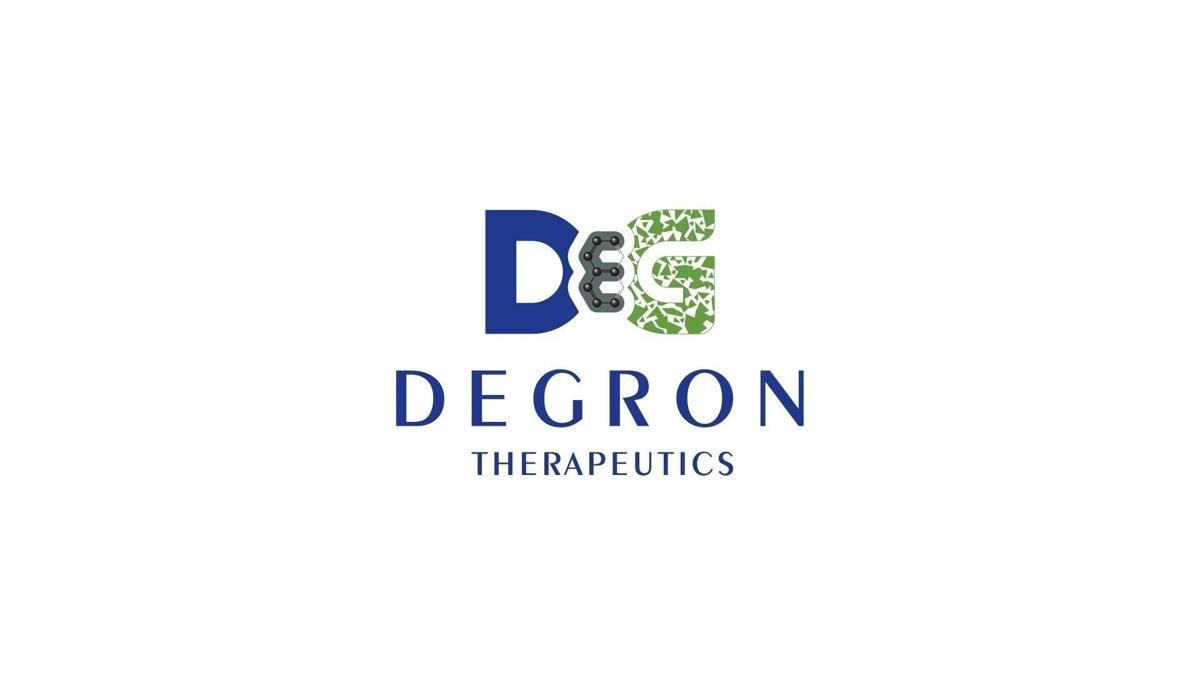预约演示
更新于:2025-11-11

杭州达歌生物医药科技有限公司
更新于:2025-11-11
概览
标签
肿瘤
分子胶
疾病领域得分
一眼洞穿机构专注的疾病领域
暂无数据
技术平台
公司药物应用最多的技术
暂无数据
靶点
公司最常开发的靶点
暂无数据
| 排名前五的药物类型 | 数量 |
|---|---|
| 降解型分子胶 | 3 |
| 分子胶 | 1 |
关联
4
项与 杭州达歌生物医药科技有限公司 相关的药物靶点 |
作用机制 ELAVL1 inhibitors |
在研机构 |
原研机构 |
非在研适应症- |
最高研发阶段临床1期 |
首次获批国家/地区- |
首次获批日期- |
靶点 |
作用机制 WEE1 降解剂 |
在研机构 |
原研机构 |
在研适应症 |
非在研适应症- |
最高研发阶段药物发现 |
首次获批国家/地区- |
首次获批日期- |
靶点 |
作用机制 CRBN 降解剂 [+1] |
在研机构 |
原研机构 |
在研适应症 |
非在研适应症- |
最高研发阶段药物发现 |
首次获批国家/地区- |
首次获批日期- |
2
项与 杭州达歌生物医药科技有限公司 相关的临床试验ChiCTR2500111975
A First in Human Phase 1 Open-Label, Multicenter, Dose Escalation and Expansion Study of DEG6498 in Patients With Solid Tumors
开始日期2025-11-12 |
申办/合作机构 中山大学肿瘤防治中心 [+1] |
CTR20254261
DEG6498 在实体瘤患者中的首次人体 I 期开放标签、多中心、剂量递增及扩展研究
评价DEG6498口服给药的安全性/耐受性, 确定DEG6498单药的最大耐受剂量(MTD) 和/或推荐 II 期剂量(RP2D).
开始日期- |
申办/合作机构 |
100 项与 杭州达歌生物医药科技有限公司 相关的临床结果
登录后查看更多信息
0 项与 杭州达歌生物医药科技有限公司 相关的专利(医药)
登录后查看更多信息
147
项与 杭州达歌生物医药科技有限公司 相关的新闻(医药)2025-11-11
首届默沙东研发中国科学日在京成功举办
深化本土创新合作生态,助力中国创新走向全球化
中国北京,2025年11月11日——今日,默沙东中国研发中心在北京成功举办首届默沙东研发中国科学日。活动汇聚来自科研院所、医疗机构、生物科技企业及金融领域的嘉宾,共同探讨医药创新、临床开发与产学研合作新机遇。活动期间,默沙东研发(中国)有限公司与祐森健恒生物医药签署合作协议,围绕自身免疫疾病领域的小分子化合物开展联合研发;与美赛生物、达歌生物签署合作意向书,进一步深化默沙东的中国创新国际化布局,践行其立足本土、惠及全球患者的坚定承诺。
作为默沙东全球研发的重要创新实践,默沙东研发中国创新合作中心(MSD R&D China Innovation Collaboration Center, MCICC)于2024年11月1日正式成立,致力于搭建一个开放、敏捷、高效的创新合作平台,聚焦早期研发阶段的高潜力项目,整合默沙东的全球科研资源与中国本土创新生态的优势,推动从“中国发现”到“全球应用”的高质量临床转化路径。随着源自中国的创新成果不断展现出全球影响力,创新合作中心的成立标志着默沙东进一步深化与中国科学界及生物医药产业合作的战略布局。
依托这一平台,默沙东将携手卓越的本土合作伙伴,共同推动突破性创新,并加速将其转化为全球可及的治疗方案,让更多患者及早受益。过去一年间,创新合作中心与国内生物科技公司、投资机构、产业园区、医院和高校紧密合作,构建广泛的合作网络;在推进项目评估和临床开发合作的同时,持续与行业伙伴分享国际经验与合作机会,促进全球研发资源与中国创新生态的双向联结。
得益于中国日益完善的药品监管体系与强劲的生物医药创新政策支持,默沙东在华研发实现了多项突破——在中国开展多项全球领先的首次人体试验,并实现新适应证在中国的全球首次获批,彰显了默沙东在本土研发与全球协同方面的深厚实力。凭借这一独特优势,默沙东正加速推动源自中国的科学突破向全球患者可及的创新药物转化。
此次举办的科学日,作为默沙东研发中国的年度旗舰活动,旨在打造一个高水平的科学交流平台,促进默沙东与中国创新生态的深度对话与合作,加速创新成果转化,让更多患者受益。通过这一平台,默沙东希望进一步加强与本土创新力量的协同,助力融入中国充满活力的创新格局。
李正卿博士
默沙东全球高级副总裁
中国研发中心总裁
“
中国正成为全球医药创新的重要策源地。默沙东研发中国创新合作中心的使命,是识别并赋能极具潜力的本土科学发现,将其转化为具有全球影响力的治疗方案。这不仅是默沙东2030研发战略在中国的关键实践,更是我们推动中国创新走向世界的重要桥梁。
”
白立夫(Eliav Barr)博士
默沙东全球首席医学官
临床开发负责人
“
科学无国界,创新源于合作。这些源自中国的创新项目在机制上独具特色,展现出巨大的潜力,有望满足未尽临床需求。
通过与中国极具活力的生物技术公司携手,我们能够更高效地提升这些候选药物的临床价值。未来我们期待将更多中国本土创新与默沙东的科研实力相结合,为中国和全球的未满足医疗需求提供更多创新解决方案。
”
目前默沙东中国研发中心总部在北京,在上海、广州、成都和武汉设有研发团队,重点聚焦肿瘤、疫苗、抗感染、心血管与代谢、呼吸疾病、免疫、神经科学及眼科等领域;肿瘤研究项目涉及20余种癌症种类,其中包括多个中国高发癌种。截至现今,默沙东已经将超过80个创新药物、疫苗、新适应证和伴随诊断试剂带到中国,持续满足本土患者的临床需求。
关于默沙东
在默沙东(默沙东是美国新泽西州罗威市默克公司的公司商号),我们齐心协力追求共同的目标:我们发挥前沿科学的力量,在全球范围内拯救生命、改善生活。130多年来,我们通过研发重要药物和疫苗,为全人类带来希望。我们致力成为顶尖的研究密集型生物制药公司——当下,我们正处于研发前线,推出创新解决方案,以推进人类和动物疾病的预防和治疗。我们建立了一个多元、包容的全球员工体系,以负责的态度经营每一天,确保所有人、所有社区都能有一个安全、可持续和健康的未来。更多信息,请访问www.msd.com,并在X(前身为Twitter)、LinkedIn和Youtube平台关注我们。
关于默沙东中国
中国是默沙东全球增长战略中至关重要的一部分。默沙东中国总部设在上海,同时在北京设有研发中心、在杭州、宁波和天津分别设有工厂,实现了研发、制造和商业运营三擎合一。我们全心全意,向中国大众提供高质量的创新药物、疫苗和服务,造福中国社会。更多信息,敬请访问默沙东中国官网,或关注默沙东中国在微信上的官方社交媒体账号。
默沙东前瞻性声明
默沙东是美国新泽西州罗威市默克公司的公司商号(下称“公司”)。本新闻稿包含根据《1995 年美国私人证券诉讼改革法案》之安全条款而做出的“前瞻性声明”。本文内容基于公司管理层当前的看法和预期,并且受制于可能出现的重大风险和不确定因素。默沙东不保证在研产品能获得所需的监管部门批准或取得商业成功。如果相关假设与现实有所出入、出现风险,或发生不确定情况,实际结果可与前瞻性声明中的预期有实质上的差异。
风险和不确定因素包括但不仅限于一般行业情况与竞争、一般经济因素(包括利率与汇率浮动)、美国及其他国家制药行业监管以及医疗政策的影响、全球范围内控制医疗成本的趋势、技术发展、竞争对手获得的新产品与专利、新产品开发固有的挑战(包括获得监管部门批准)、默沙东对未来市场形势做出准确预测的能力、生产上的困难或迟延、国际经济金融状况不稳定与主权风险、对默沙东专利和其它创新产品保护的有效性的依赖程度,以及公司面临专利诉讼和/或监管行动的风险。
默沙东没有义务就新信息、未来事件或其它原因对任何前瞻性声明进行公开的更新。尚有其它因素可能导致实际结果与前瞻性声明存在实质性差异,请参见默沙东2024年年报10-K报表以及公司在美国证券交易所备案的其它文件(可在美国证券交易所网站www.sec.gov上查阅)。
申请上市引进/卖出
2025-11-08
·联新资本
01
资本合作
长风药业(2652.HK)
10月8日长风药业成功登陆港交所主板。
10月8日,由联新资本领投企业长风药业股份有限公司(2652.HK)在香港证券交易所主板上市。本次IPO发行价为每股14.75港元,今日开盘价为48港元/股,大涨225.42%,市值近200亿港元。
诚益生物
10月8日诚益生物递交港交所上市招股书。
10月8日,诚益生物港股IPO申请获得受理,招股书正式公开。诚益生物成立于2018年,致力于开发新一代口服小分子药物,以解决心血管代谢疾病和炎症性疾病尚未满足的重大临床需求。小分子GLP-1受体激动剂、THR-β激动剂、SSAO抑制剂君推进到临床阶段,后续管线还有小分子GIP受体激动剂、小分子Amylin受体激动剂等。2023年联新资本领投其B轮融资,一直给予公司长期支持。
02
业务进展
漫迪医疗
10月10日我国心磁图诊断冠脉微血管疾病专家共识重磅发布。
2025年10月10日,国家重点研发计划心磁专家共识发布会暨临床进展研讨会,在第十九届华夏心血管病学论坛(CICI2025)上于北京成功举办。本次会议由中国微循环学会心血管代谢与微循环专业委员、国家重点研发计划心磁图仪重点专项课题组及中国心磁技术专家协作组共同主办,漫迪医疗协办。本次依托国家重点研发计划心磁专项发布的《心磁图诊断冠脉微血管疾病临床应用专家共识》由复旦大学附属中山医院葛均波院士、上海交通大学医学院附属第六人民医院沈成兴教授、中国人民解放军总医院陈韵岱教授、上海市公共卫生临床中心徐亚伟教授担任指导专家,会议由中国人民解放军总医院田峰教授主持。
达歌生物
10月10日赵仲冬博士加入达歌生物任职化学副总裁。
赵仲冬博士正式加入公司,担任化学副总裁职务。她将全面统筹公司分子胶药物研发化学策略的设计、规划和实施工作,并向公司CEO兼联合创始人邹丽晖博士汇报工作。赵仲冬博士拥有逾20年小分子药物研发经验,在吉利德科学公司任职了15年,涉及领域包括肿瘤学、自身免疫性炎症疾病、代谢性疾病及病毒学。在吉利德任职前,赵博士任职于CGI Pharmaceuticals, 和团队一起开发了用于炎症和自身免疫性疾病的的可逆性BTK小分子抑制剂。
澳斯康
10月11日上海澳斯康生物制药(ADC 生产场地)通过欧盟QP审计。
上海澳斯康生物制药(ADC生产场地)于近期顺利通过欧盟质量受权人(Qualified Person,QP)审计,并正式取得由QP签发的符合性声明(QP Declaration),使其成为国内少数具备ADC国际化服务资质的CDMO企业之一。公司将以此为新起点,持续优化ADC偶联筛选与工艺开发、纯化工艺开发、分析方法开发等技术平台,加快国际化业务布局,持续为客户提供从早期研发到商业化生产的全方位、高质量服务。
奕瑞科技(688301.SH)
10月14日奕瑞科技携多款工业数字X线探测器及解决方案重磅亮相ASNT。
近日,2025年美国无损检测年会(ASNT)举办,公司携多款工业数字X线探测器及解决方案重磅亮相,与全球行业专家共探技术前沿,收获广泛关注与认可。本次展会,公司聚焦于解决复杂检测场景下的实际挑战,重点展出了覆盖四大技术路线的多款明星产品,如曲面无线便携探测器、高精度高速探测器、高能动态探测器等,全面展现公司在工业无损影像检测技术与应用上的深厚功力。
长风药业(2652.HK)
10月15日长风药业吸入创新药入选苏州市“关键核心技术攻关”项目。
苏州市科技局公布2025年“关键核心技术攻关”项目立项清单。长风药业面向肺纤维化(含特发性肺纤维化,IPF)的全球首创吸入创新药项目成功获批。该项目依托公司一体化吸入平台(处方工艺—递送装置—临床与CMC合规生产),以直达肺部、提高病灶暴露、降低全身负担为核心思路,旨在为肺纤维化提供差异化的治疗新范式。
10月17日长风药业治疗肺气肿领域的微创介入器械完成首例入组。
公司自研支气管活瓣肺减容装置成功完成首例受试者入组(FPI),本临床验证阶段由此正式拉开帷幕,旨在为肺气肿等慢阻肺(COPD)相关人群拓展一条微创介入治疗路径。首例入组手术的顺利完成,标志着此项创新微创介入器械正式进入临床验证阶段。
10月21日 长风药业吸入制剂再获海外新市场。
公司在国际化发展中取得可喜进展。继首次成功实现海外发货后,公司自主研制的吸入制剂产品再度获得又一海外市场的监管批准,并同步达成相关采购合作。这标志着公司又迈出稳健的一步,进一步拓展了公司的海外商业网络。
10月23日长风药业与九州通全擎健康签署战略合作协议。
长风药业与九州通全擎健康产业(湖北)有限公司在武汉正式签署战略合作协议。双方将充分发挥各自在呼吸系统吸入制剂研发生产与全国性医药销售服务网络的优势,围绕全产品多终端渠道推广展开深度合作,共同推动优质药品更高效、更精准地惠及广大患者,为健康中国建设注入新动能。
思哲睿
10月17日思哲睿康多机器人在阿塞拜疆展示圆满成功。
近日,思哲睿康多机器人SR2000在阿塞拜疆国家肿瘤中心顺利完成展示,标志着思哲睿智能医疗在推动全球精准医疗发展方面迈出坚实一步。本次活动在阿塞拜疆国家肿瘤中心举行,以“机器人手术在妇科肿瘤领域的创新应用”为主题,汇聚了中阿两国顶尖医疗专家,共同见证康多机器人®SR2000在该国的展示。
宣泰医药(688247.SH)
10月20日宣泰医药“西格列汀二甲双胍缓释片”获美国FDA暂时批准。
公司向美国FDA申报的西格列汀二甲双胍缓释片的简略新药申请(ANDA)获得暂时批准,获批规格为50/500mg、50/1000mg。
10月29日宣泰医药奥拉帕利片成功中标第十一批全国药品集采。
《全国药品集中采购拟中选结果公示》正式发布,上海宣泰医药科技股份有限公司(股票代码:688247)产品奥拉帕利片成功中标第十一批全国药品集中采购,标志着公司在国家层面药品供应体系中再进一步。
艾凯生物
10月29日艾凯生物iPSC来源多巴胺能前体细胞治疗原发性帕金森症临床疗效显著。
近日,艾凯生物自主研发的诱导多能干细胞(iPSC)来源的多巴胺能前体细胞药物,在浙江大学医学院附属第二医院(以下简称“浙大二院”)开展的临床试验中取得重大进展。首例接受治疗的帕金森病患者在术后半年随访,核心运动症状获得显著改善,且安全性良好无副作用。这标志着公司在该疗法在临床研究中取得了阶段性成果。
03
荣誉获得
深睿医疗入选中国人工智能产业发展联盟(AIIA)2025 AIIA人工智能先锋案例
依利特科技荣登2025年江苏独角兽企业名单
上药云健康荣获“2024年全国药品流通百强榜单”
镁信健康荣获渣打银行“创新科技企业杰出奖”
关于我们
联新资本2008年8月成立于上海,是科创领域有代表性的私募股权和创业投资机构,主要投资人包括知名国有企业集团、保险资金、专业母基金、政府引导基金和上市公司等。联新资本目前管理多支基金,注册资本1亿元,目前累计管理规模超过170亿元人民币。联新资本为中国保险资产管理业协会私募股权投资A类基金管理人,并连续多年被评为中国私募股权投资机构Top 50/100。
联新资本的主要投资方向包括信息科技、医疗健康、未来科技等领域,涵盖早期、成长期、成熟期等各阶段。至今已完成150余项投资,其中在境内外上市的企业30余家,布局培育了一批拥有国际竞争力、产业引领力、市场影响力的行业龙头。
联新资本以增值服务为核心能力,团队核心成员在国企改制、民营创业投资、跨国公司本土化等多个领域拥有丰富的投资和管理经验。特有的产业背景和科研资源优势使得联新资本在产业培育、资本运作等方面,更好地为中国优秀的企业和企业家提供财务和战略支持。联新资本坚持扎根硬科技产业,秉持“与伟大的企业共同成长”的理念,持续为所投资企业积极赋能创造价值,推动产业升级,为发展新质生产力作出贡献。
IPO抗体药物偶联物高管变更
2025-10-26
·药曝观点
10月22日,中国生物医药领域迎来历史性时刻——信达生物宣布与武田制药达成超114亿美元(折合人民币超800亿元)的合作,这一金额直接刷新了中国生物医药对外授权交易的最高纪录,成为行业关注的焦点。
01
一笔改写纪录的合作:3款中国原研药引全球巨头侧目
此次合作并非简单的技术授权,而是基于信达生物三大核心管线的深度绑定。交易涉及两款已进入三期临床的后期疗法,以及一款极具潜力的早期研发项目,均为信达自主研发的全球首创药物。
IBI363:这款PD-1/IL-2α-bias双特异性抗体融合蛋白堪称新一代肿瘤免疫治疗的标杆。它通过双重机制精准攻击肿瘤——既阻断PD-1通路解除免疫抑制,又选择性激活IL-2通路扩增肿瘤特异性T细胞,有效避免了传统疗法的全身毒性。在临床中,其对鳞状非小细胞肺癌的客观缓解率达36.7%,疾病控制率更是高达90%,已获中美两国突破性疗法认定,计划2026年申请FDA加速审批。IBI343:作为靶向CLDN18.2的抗体偶联药物(ADC),它精准瞄准胃癌、胰腺癌等亚洲高发的消化道肿瘤。临床数据显示,其对晚期胰腺癌的疾病控制率达81.8%,胃癌适应症也展现出32.6%的客观缓解率,目前全球多中心三期临床正在推进中。
IBI3001:这款早期阶段的双抗ADC药物创新性靶向B7-H3与EGFR,通过多重机制实现强效肿瘤杀伤,临床前数据显示其治疗窗口高达40倍,为后续开发奠定了坚实基础。 值得注意的是,此次交易主体为武田制药全球总部,合作范围覆盖大中华区以外的全球市场,而信达生物则保留了在本土市场的成熟布局权益,展现出"中国研发、全球共享"的合作格局。
02
为何是武田?千亿布局背后的双向选择
在接触多家企业后,信达最终选择武田,核心源于对方的硬实力与合作诚意。 从武田的角度看,此次合作是其完善肿瘤管线的关键一步。作为全球Top15药企,武田在消化道疾病领域拥有深厚积累,而IBI343等管线恰好能与其实体瘤布局形成互补,实现血液肿瘤与实体瘤的均衡发展。更关键的是,武田全球肿瘤业务部总裁Teresa曾主导全球首个PD-1抑制剂"O药"的推出,在肿瘤药物商业化领域经验丰富,为合作项目提供了强大的人才支撑。 从合作模式看,武田给出的"Co-Co共同开发"方案极具吸引力。不同于单纯的授权交易,双方针对IBI363采用40/60(信达/武田)的比例共担开发成本、共享美国市场利润,12亿美元首付款中还包含1亿美元战略股权投资,充分体现了风险共担、利益共享的合作理念。
信达生物CEO俞德超直言:"武田正是理想的合作伙伴。"借助武田遍布80多个国家和地区的研发与商业化网络,中国原研药得以加速走向全球市场。
03
三年砸千亿:武田的中国押注之路
这笔800亿大单并非偶然,而是武田持续布局中国创新药的必然结果。在掌舵人卫博科的推动下,武田已连续三年在中国签下重磅合作,累计交易金额超150亿美元(约合1060亿人民币)。
2023年,武田以11.3亿美元拿下和黄医药呋喹替尼的海外权益,该产品当年便在美国实现大卖;同年,其终止自有AAV基因治疗早期研究,转而下注中国信念医药的相关产品。2024年,武田再以13亿美元获得亚盛医药耐立克的海外权益,并成为其第二大股东——即便手中握有竞品,仍因中国药物更优的疗效和安全性果断出手。此外,与达歌生物在分子胶降解剂领域的合作,也彰显了其对中国创新技术的全面关注。 这一系列布局背后,是武田"拓维中国"战略的清晰落地。卫博科明确提出,要在2030年将中国打造成武田的全球第二大市场,为此专门要求中国团队深度对接全球资源。在他看来,"中国拥有高质量的医疗数据,在AI医疗领域的潜力巨大,非常希望把这些中国创新成果带到全球"。
04
交棒在即:10年全球化推手的中国遗产
值得关注的是,这场千亿布局恰逢武田的管理层交接期。法国人卫博科作为武田首位非日籍掌舵人,任职10年间主导了621亿美元收购夏尔等关键动作,推动企业跻身全球药企前列。在华市场,他任期内推动上市的15款创新产品,数量超过此前25年的总和。 明年6月,卫博科将正式退休,接任者为美国业务部总裁Julie Kim。业内认为,与信达等中国药企达成的天价合作,正是卫博科留给继任者的珍贵资产。武田全球肿瘤业务部已明确表示,将信达合作项目定位为"颠覆式的肿瘤管线",有望成为2030年后的核心增长引擎。
从行业视角看,这笔交易更折射出中国创新药的全球价值升级。2025年上半年,中国创新药对外授权总金额已超660亿美元,远超2024年全年总额,越来越多的跨国药企将中国视为全球创新的重要源头。 当拥有244年历史的日本药企与中国创新力量深度绑定,这场800亿的合作不仅改写了交易纪录,更标志着中国生物医药从"引进来"到"走出去"的历史性跨越。
(图片来源网络)
引进/卖出突破性疗法临床3期抗体药物偶联物
100 项与 杭州达歌生物医药科技有限公司 相关的药物交易
登录后查看更多信息
100 项与 杭州达歌生物医药科技有限公司 相关的转化医学
登录后查看更多信息
组织架构
使用我们的机构树数据加速您的研究。
登录
或

管线布局
2026年02月09日管线快照
管线布局中药物为当前组织机构及其子机构作为药物机构进行统计,早期临床1期并入临床1期,临床1/2期并入临床2期,临床2/3期并入临床3期
药物发现
3
1
临床1期
其他
3
登录后查看更多信息
当前项目
| 药物(靶点) | 适应症 | 全球最高研发状态 |
|---|---|---|
DEG-6498 ( ELAVL1 ) | 晚期恶性实体瘤 更多 | 临床1期 |
Inflammatory disease therapeutics (Degron Therapeutics) ( CRBN ) | 炎症 更多 | 药物发现 |
GSPT1 degrader (Degron) ( GSPT1 ) | 肿瘤 更多 | 药物发现 |
WEE1 (Degron) ( WEE1 ) | 肿瘤 更多 | 药物发现 |
Protein A (Degron) | 实体瘤 更多 | 终止 |
登录后查看更多信息
药物交易
使用我们的药物交易数据加速您的研究。
登录
或

转化医学
使用我们的转化医学数据加速您的研究。
登录
或

营收
使用 Synapse 探索超过 36 万个组织的财务状况。
登录
或

科研基金(NIH)
访问超过 200 万项资助和基金信息,以提升您的研究之旅。
登录
或

投资
深入了解从初创企业到成熟企业的最新公司投资动态。
登录
或

融资
发掘融资趋势以验证和推进您的投资机会。
登录
或

生物医药百科问答
全新生物医药AI Agent 覆盖科研全链路,让突破性发现快人一步
立即开始免费试用!
智慧芽新药情报库是智慧芽专为生命科学人士构建的基于AI的创新药情报平台,助您全方位提升您的研发与决策效率。
立即开始数据试用!
智慧芽新药库数据也通过智慧芽数据服务平台,以API或者数据包形式对外开放,助您更加充分利用智慧芽新药情报信息。
生物序列数据库
生物药研发创新
免费使用
化学结构数据库
小分子化药研发创新
免费使用
